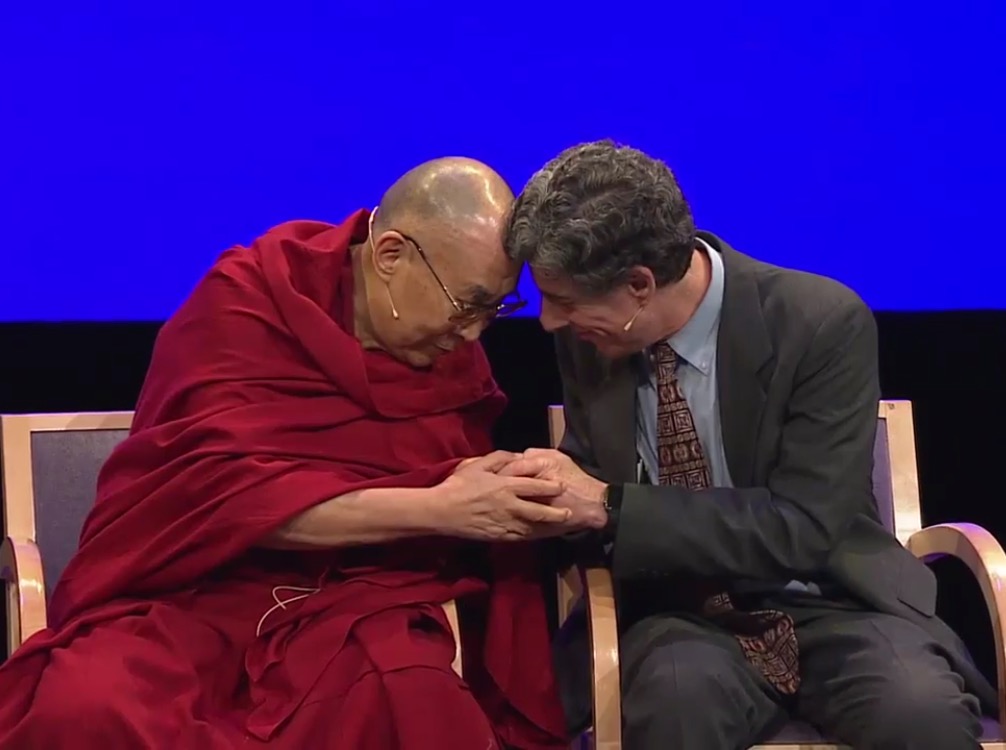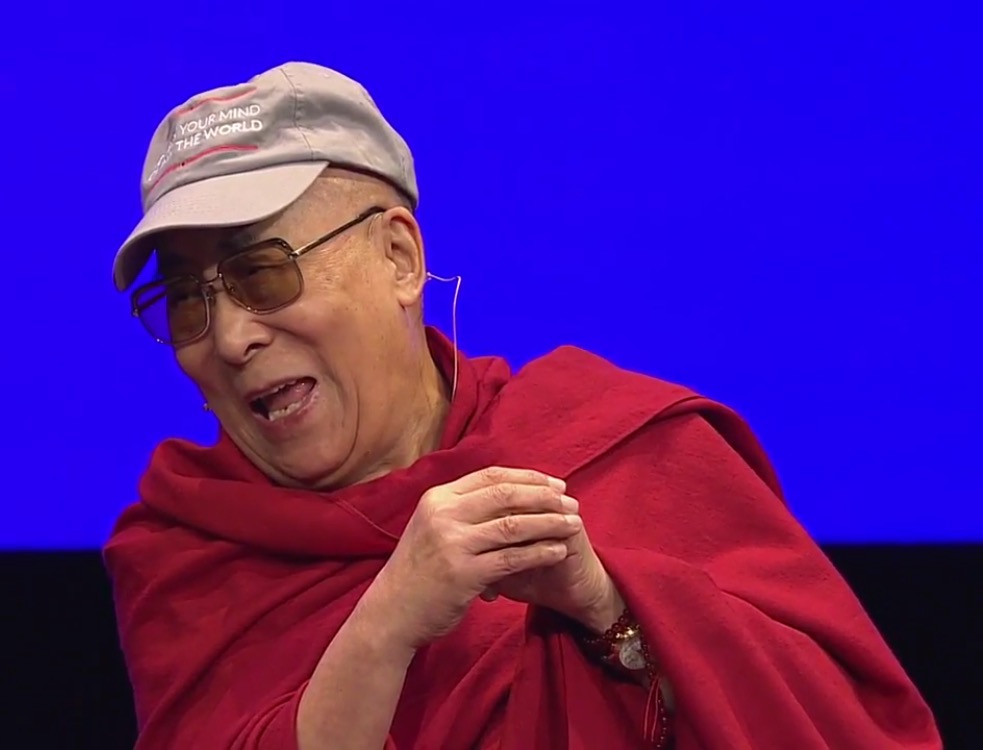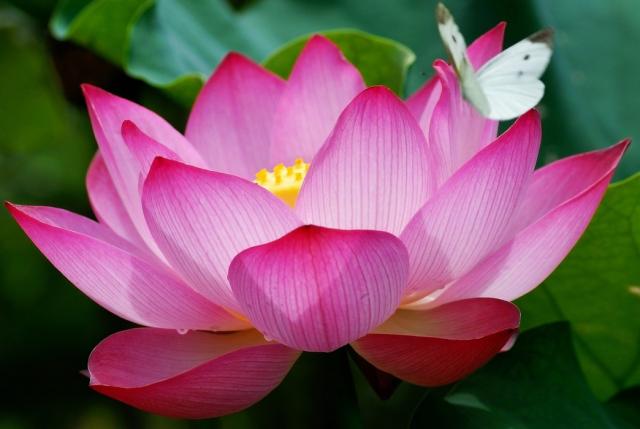Change Your Mind, Change The World
The overriding theme was change your mind, change the world. The idea that world peace begins with inner peace. A lot of the discussion centered around the benefits of meditation as a tool to achieve inner peace. The Dalai Lama believes that scientific research into meditation is important because having evidence and knowledge about the physical and mental benefits meditation can have on a person enhances “the well-being of the world.” Meditation is a way to find peace of mind within oneself without relying on outside escapes, such as drugs or alcohol, he said.
Dr. Davidson said having good health doesn’t just mean the “absence of illness” in the body, but also removing suffering from the mind. He believes that teaching others how to do that through the practice of meditation, learning to live happier, can have real long-term benefits.
“It’s public health because disturbing emotions we know cause changes in the body that impact our physical health,” Davidson said. “And so there is evidence to suggest that people who are happier and have higher levels of well-being actually have biology that is more conducive to health.”
Dr. Davidson discussed how research has proven that well-being (which he partly defines as happiness) is a skill that can be learned. He detailed four constituents of well-being that have been extensively investigated neuroscientifically.
1. Resilience - how quickly we recover from adversity. Having a meditation practice cultivates increased resilience.
2. Positive outlook - when you look at every human being you see their basic goodness and savor and imbue everything that we do.
3. Attention - a wandering mind is an unhappy mind. We can learn to pay attention through meditation.
4. Generosity - acts of generosity activates circuits in the brain that promote well-being.
Research shows these are skills that can be learned and enhanced creating more well-being.
The Dalai Lama's message consistently focused on love and compassion, the concept of oneness and humanity, and education on inner awareness based on science. He noted that all religions acknowledge love and that meditation (which he refers to as mental training) creates more love. He stressed that we are talking about humanity and not specific religions. He believes that oneness and compassion will bring world peace.
The Dalai Lama also discussed prayer. He said that praying by itself is not okay, that we need prayer and effort. He said that we can bring our prayers to Jesus or to Buddha or to whomever asking them to solve the world's problems. He believes that they would say...you created them, you fix them. He feels that yes we should pray, but that prayer without action is not okay. We also need to make the effort ourselves to do what it takes to fix the problems that humankind has made.
These were just some of the highlights, I have included below a link to the youtube video of the entire event. It's an hour and a half long. I found it hard to hear and understand the Dalai Lama when he first speaks, don't get discouraged his voice projects more after a few minutes. I also found that I became accustomed to his accent allowing me to understand him better after the first few minutes. Enjoy!
What are your thoughts on these highlights or on the video? Do you agree that oneness and compassion will bring world peace? Do you agree that prayer without effort isn't enough? What do you think about the four constituents of well-being? Do you agree that well-being is a skill that can be learned and enhanced? Have you started a meditation practice yet? If not, what's holding you back? I would love to hear your comments and feedback!


 RSS Feed
RSS Feed
